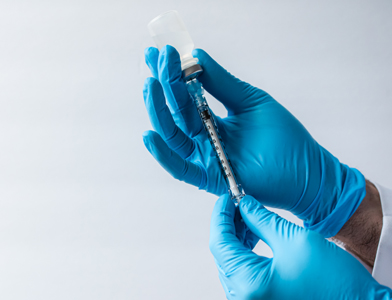COVID-19 Booster Shots: What You Need to Know
Originally published October 8, 2021. Updated October 19, 2022.
With new variants emerging across the United States, booster shots can help strengthen protection against severe disease.

Studies show that after getting vaccinated against COVID-19, protection against the virus may decrease over time. This lower effectiveness is likely due to the combination of decreasing protection as time passes since getting vaccinated and the greater infectiousness of variants.
Evolving guidance from CDC now allows tens of millions of Americans to receive COVID-19 booster shots. Eligible individuals may choose which vaccine they receive as a booster dose. Some people may prefer the vaccine type they originally received, and others may prefer to get a different booster. CDC’s recommendations now allow for this type of mix-and-match dosing for booster shots.
The CDC has a clinical preference for the Pfizer and Moderna mRNA vaccines over Johnson & Johnson’s, following the release of new data showing a higher risk for a rare blood clotting disorder than previously known. A Novavax COVID-19 vaccine is also available for people 12 and older.
If you have any questions about COVID-19 booster shots or your eligibility, please consult your healthcare provider.
While booster shots can provide additional protection to those already vaccinated, booster shot implementation alone won’t end the pandemic.
“We will not boost our way out of this pandemic,” warns Dr. Walensky while noting that most COVID-19 cases and hospitalizations are among the unvaccinated.
If you are not yet vaccinated and are interested in learning more about the vaccine or finding a shot near you, CareFirst has you covered. Every person age six months and older is eligible to receive the vaccine.